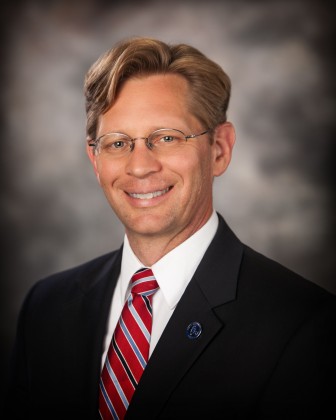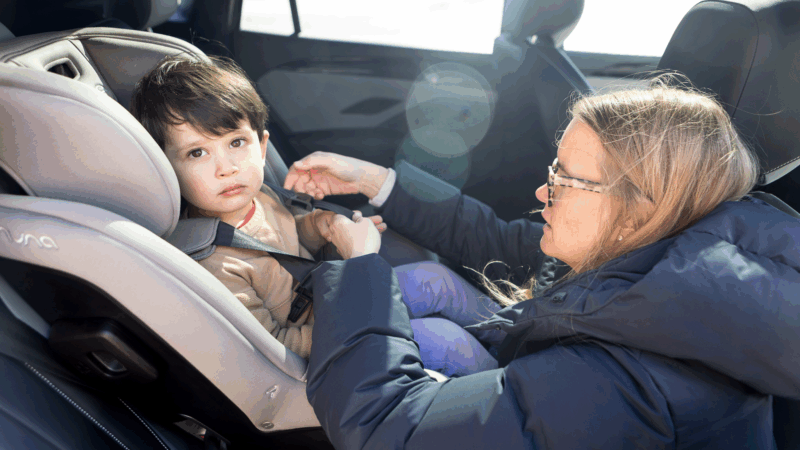Alabama Schools Chief Explores Ways To Teach Students During An ‘Incomplete Year’
Many K-12 schools in Alabama have been closed for more than a week due to the coronavirus. Right now, plans call for students to return to school on April 6. But State Superintendent Eric Mackey says it’s unlikely that will involve traditional, face-to-face teaching in a classroom. Instead, education leaders are trying to figure out how to teach students as COVID-19 spreads. Mackey spoke with WBHM’s Andrew Yeager.
Teaching in a time of Coronavirus
 Mackey says they’re considering a number of options, from online learning to correspondence courses, which involves sending packets back and forth. He says the best methods will vary by district.
Mackey says they’re considering a number of options, from online learning to correspondence courses, which involves sending packets back and forth. He says the best methods will vary by district.
“We have some school districts now that could go digital, online delivery for close to 90% of their students,” Mackey says.
Others districts may be set up for online learning, but only for particular grades. Another consideration is whether students have reliable internet access at home. Mackey says some students may have to return to finish course work over the summer, but he doesn’t anticipate it would resemble a traditional summer school set up.
Mackey has surveyed superintendents and formed a task force to evaluate options. He’s expected to make a recommendation on how to proceed to Gov. Kay Ivey by March 30th. He adds parents will have sufficient notice to plan.
Mackey says there’s no truth to the rumor students will have to repeat the school year.
“That is not an option,” Mackey says. “We’re going to make sure that we get students what they need so they can progress.”
A top priority is making sure high school seniors can graduate. Part of that is helping students finish incomplete credentials. For instance, finding a way for Advanced Placement students to finish lessons so they’re prepared for tests. The College Board announced last week students could test using an online exam at home.
It’s also a consideration for those on a career and technical education path. For example, a welding student has work that must be performed in person.
“We may graduate them, but then they come back in the summer and finish their credential test,” Mackey says. “We want to graduate students either on time or as close to on time as possible.”
Fighting an Extreme Case of the Summer Slump
Studies have documented school children generally lose knowledge and skills over the summer break, often referred to as the “summer slump.” The shut down due to coronavirus effectively extends spring break to three weeks. With that, along with a likely move to alternative instruction methods, Mackey is very concerned about the impact on student progress.
“This is going to be, in many ways, an incomplete year. Even with our best efforts of moving online, correspondence courses, some summer school things, it’s going to be an incomplete year.”
Mackey encourages parents to engage with their children at home. He says there are many resources online that may not be part of a traditional school curriculum, but can promote learning.
Alabama schools have seen disruptions before with Hurricane Katrina in 2005 and the April 27, 2011, tornado outbreak. But Mackey says those events did not affect the entire state, and the state is more familiar with natural disasters.
“The real struggle we have now is the anxiety over we don’t know when this will be over and what the end game will be,” Mackey says. “The thing we hope we learn from this are some lessons about the future. How can we be, as a society, prepared for these kinds of interruptions.”
PBS LearningMedia offers videos, interactive features and lesson plans that can support learning at home.
Parents, are you sure your kid’s car seat is installed right? Here’s how to know
In this visual guide, certified car seat experts walk through common installation mistakes and how to fix them. Learn what a secure car seat base and a tightly fastened tether look like and more.
Trump announces ‘major combat operations’ in Iran
Israel and the U.S. have launched strikes against Iran, with explosions reported in Tehran and air raid sirens sounding across Israel.
Trump says he is ‘not happy’ with the Iran nuclear talks but indicates he’ll give them more time
U.S. President Donald Trump said Friday he's "not happy" with the latest talks over Iran's nuclear program but indicated he would give negotiators more time to reach a deal to avert another war in the Middle East.
Bill Clinton says he ‘did nothing wrong’ with Epstein as he faced grilling over their relationship
Former President Bill Clinton told members of Congress on Friday that he "did nothing wrong" in his relationship with Jeffrey Epstein and saw no signs of Epstein's sexual abuse as he faced hours of grilling from lawmakers over his connections to the disgraced financier from more than two decades ago.
How the federal government is painting immigrants as criminals on social media
Experts say this kind of media campaign is unprecedented and paints a distorted picture of immigrants and crime
Pentagon puts Scouts ‘on notice’ over DEI and girl-centered policies
After threatening to sever ties with the organization formerly known as the Boy Scouts, Defense Secretary Hegseth announced a 6-month reprieve







